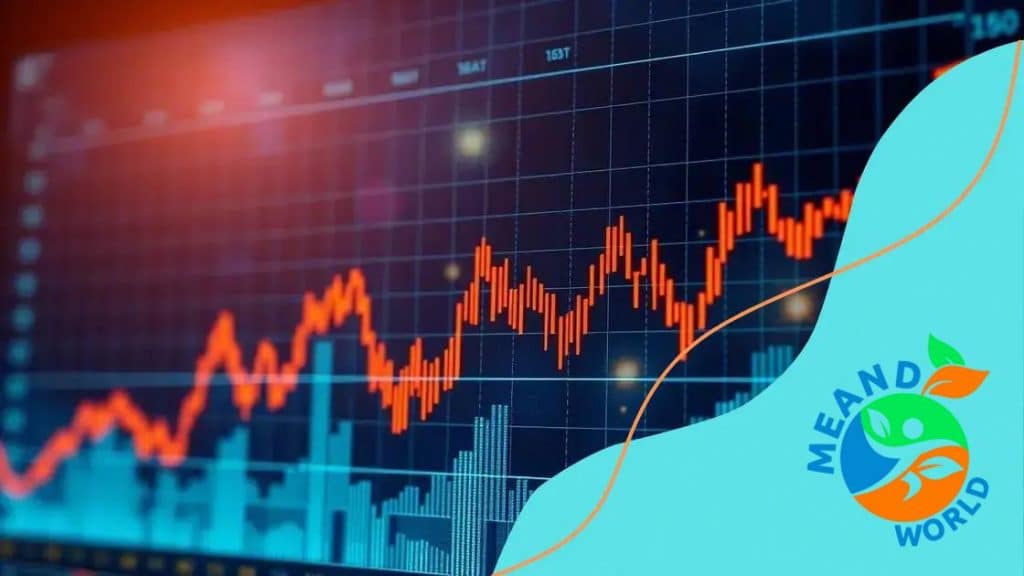Impact of rising energy prices on global financial markets

Anúncios
The impact of rising energy prices on global financial markets includes increased inflation, altered consumer spending patterns, and heightened financial risks that require proactive management strategies like diversification and hedging.
The impact of rising energy prices on global financial markets is a concern for many investors today. Have you wondered how these fluctuations can affect your investments and the economy at large? Let’s dive into how rising costs of energy might reshape our financial landscape.
Anúncios
Understanding rising energy prices
Understanding the factors behind rising energy prices can help us see the broader impact on our daily lives. These increases don’t just affect our utility bills; they can also ripple through the global financial markets.
Anúncios
Key Factors Influencing Energy Prices
Many elements contribute to the fluctuations in energy prices. These include supply and demand, geopolitical tensions, and natural disasters. The interplay of these factors keeps the market dynamic and sometimes unpredictable.
- Supply and Demand: When demand outpaces supply, energy prices typically rise.
- Geopolitical Issues: Conflicts in energy-rich regions can lead to instability in the market.
- Natural Events: Incidents like hurricanes can disrupt oil production and lead to price hikes.
- Government Policies: Changes in regulations can either hinder or promote energy production.
As we delve deeper, it’s important to recognize how these fluctuations can directly affect living costs, from heating our homes to fueling our cars. Did you know that a significant increase in energy costs can lead to higher prices for consumer goods? This is due to the increased transportation costs that businesses face.
The Impact of Global Events
Global events also play a crucial role in shaping energy prices. For instance, economic downturns can decrease demand, sometimes leading to a temporary drop in prices. Conversely, as economies recover, the demand for energy often surges, which can lead to higher prices.
Additionally, new technologies in energy production, such as renewable energy sources, can alter market dynamics. As these begin to take hold, traditional energy sources might be affected, showcasing the ever-evolving landscape of the energy market.
How energy prices influence inflation
Understanding how energy prices influence inflation is key to grasping the wider effects on the economy. When energy costs rise, the prices of goods and services often follow suit. This connection can create a cycle that affects everyday consumers.
The Direct Relationship
Higher energy prices lead to increased production costs for businesses. As a result, companies may pass these costs onto consumers in the form of higher prices. This increase in overall costs contributes to inflation, impacting the purchasing power of consumers.
- Transportation Costs: Fuel prices significantly affect transportation, which is a crucial part of many supply chains.
- Manufacturing Costs: Energy is a primary input in manufacturing; higher energy prices can lead to increased production expenses.
- Residential Costs: Rising energy costs directly influence heating and cooling bills for households.
- Consumer Spending: As prices rise, consumers may tighten their budgets, leading to reduced spending on non-essential goods.
As prices increase due to elevated energy costs, we might see a shift in consumer behavior. Households may prioritize essentials and reduce spending in other areas. This change can further slow economic growth as retailers adjust to the new spending patterns.
Broader Economic Effects
Inflation driven by energy costs can also pressure central banks to raise interest rates. When inflation is high, central banks might raise rates to control spending and stabilize the economy. Higher interest rates can slow down borrowing and spending, further impacting consumers and businesses.
As we navigate this cycle, it’s important to understand how interconnected the economy is. The relationship between energy prices and inflation highlights the delicate balance that must be maintained for economic stability.
The role of energy markets in investments

The role of energy markets in investments is crucial for both individual and institutional investors. These markets offer various opportunities to capitalize on the trends tied to energy prices and consumption patterns. Understanding how energy markets operate can enhance investment strategies, leading to potential financial gains.
Understanding Energy Markets
Energy markets are where trading of energy commodities, such as oil, gas, and electricity, occurs. Prices in these markets fluctuate based on supply and demand, geopolitical situations, and natural events. Investors need to stay updated on these factors to make informed decisions.
- Commodity Trading: Investors can buy and sell energy commodities, helping to leverage price changes.
- Futures Contracts: These are agreements to buy or sell energy at a predetermined price on a specific date, allowing hedging against price fluctuations.
- Exchange-Traded Funds (ETFs): ETFs that focus on energy companies enable diversification without directly purchasing stocks.
- Renewable Energy Investments: With the rise of sustainable energy, new investment vehicles are emerging, presenting fresh opportunities.
The relation between energy prices and investment returns is significant. When energy prices rise, stocks in energy companies often follow suit, leading to potential gains for investors. Furthermore, rising prices can signal robustness in the economy, attracting more investments into energy stocks.
Risks and Considerations
Investing in energy markets does carry risks. Price volatility can lead to rapid losses as well as gains. Additionally, changing regulations and technological advancements in renewable energy sectors may disrupt traditional energy companies. Investors should conduct thorough research and consider diversifying their portfolios to mitigate risks effectively.
Being aware of global energy policies and how they impact markets is equally important. Policy changes can create opportunities or challenges for investors, surfacing new trends in the marketplace. In summary, engaging with energy markets requires understanding market dynamics while keeping an eye on both current values and future trends.
Global economic implications of energy price spikes
The global economic implications of energy price spikes are far-reaching and affect multiple sectors. When energy prices surge, it causes a ripple effect that can disrupt economies worldwide. Understanding these implications helps consumers and businesses prepare for the challenges ahead.
Effects on Consumer Spending
Higher energy prices often lead to increased costs for goods and services. This situation forces consumers to adjust their budgets, often cutting back on discretionary spending. As a result, sectors like retail and hospitality might see a decline in sales, impacting their overall viability.
- Increased Costs: Prices for basic necessities, such as food and transportation, typically rise.
- Reduced Spending Power: As consumers spend more on energy, they have less money for other purchases.
- Impact on Small Businesses: Small enterprises may struggle to maintain profit margins.
- Potential Job Losses: Decreased consumer spending can lead to layoffs in affected sectors.
As we consider the wider impacts, it’s clear that rising energy prices can lead to inflation, which affects purchasing power further. With less money circulating in the economy, growth can stall, resulting in a downturn. During these times, governments may need to intervene to stabilize markets and support consumers.
Global Supply Chain Disruptions
Energy price spikes can also disrupt global supply chains. Many industries rely on consistent energy prices for planning and operation. When energy costs rise unexpectedly, it can cause companies to reevaluate their supply chain strategies, which may lead to delays and increased prices.
Companies may seek alternative suppliers or rethink their logistics, leading to potential instability in product availability. This can aggravate inflationary pressures and create a challenging environment for international trade.
In this interconnected world, no economy is isolated. A spike in energy prices in one region can impact another thousands of miles away, highlighting the importance of watching global energy trends for signs of wider economic shifts.
Strategies for managing financial risk
Developing effective strategies for managing financial risk is essential for individuals and businesses, especially in volatile markets influenced by rising energy prices. Knowing how to navigate these risks can help protect investments and ensure financial stability.
Diversification of Investments
Diversifying investments is one of the safest strategies. By spreading investments across different asset classes—such as stocks, bonds, and commodities—investors reduce the impact of any single market downturn. In the context of energy markets, consider holding assets in both traditional energy stocks and renewable energy companies.
- Multiple Asset Classes: Holding a mix of real estate, bonds, and stocks can cushion against losses.
- Investing in ETFs: Energy-focused exchange-traded funds (ETFs) provide diversified exposure to energy markets.
- International Exposure: Investing in energy companies from different countries can mitigate local market risks.
- Regularly Review Portfolio: Make adjustments based on market conditions and performance.
In addition to diversification, being proactive in monitoring market trends is vital. Awareness of global events, economic conditions, and policy changes can help investors make timely decisions.
Utilization of Hedging Techniques
Hedging is another method to manage financial risk. This involves making investments designed to offset potential losses in other areas of a portfolio. For instance, futures contracts can lock in prices for energy commodities, providing a buffer against price volatility.
Alongside hedging, it’s important to set clear financial goals and risk tolerances. Understanding how much risk you can handle will guide your investment choices. Regularly reassess these limits as market conditions or personal circumstances change.
Establishing an emergency fund can also safeguard against sudden financial downturns. This safety net allows for better decision-making during market fluctuations, reducing the urge to make hasty financial moves.
Conclusion: Understanding the impact of rising energy prices on global financial markets is crucial for making informed investment decisions. By recognizing how energy prices influence inflation and global economies, investors can better navigate the challenges ahead. Implementing effective strategies for managing financial risk is essential, including diversification and hedging techniques. Staying informed about market trends allows for smarter financial choices that can ultimately lead to more stable investments. In summary, being proactive and adaptable in the face of rising energy costs can enhance financial security and foster economic growth.
FAQ – Frequently Asked Questions about the Impact of Rising Energy Prices on Financial Markets
How do rising energy prices affect inflation?
Rising energy prices can lead to higher costs for goods and services, contributing to overall inflation and reducing consumer purchasing power.
What strategies can I use to manage financial risk related to energy prices?
Diversification of investments and hedging techniques, such as futures contracts, are effective strategies to manage financial risk.
Why is it important to stay informed about energy markets?
Staying informed helps investors make timely decisions based on market trends and global events that influence energy prices.
What are the economic implications of energy price spikes?
Energy price spikes can lead to reduced consumer spending, disrupt supply chains, and impact global economic stability.





